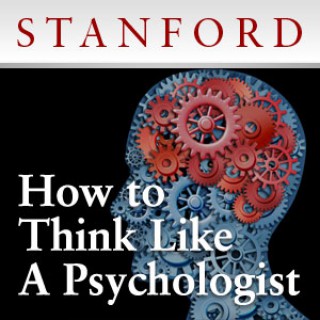
Transforming Our Understanding of Human Health
Follow Transforming Our Understanding of Human HealthDuring the final quarter of the Stanford Mini Med School, we will address some of the most timely and important topics in contemporary medicine and the biosciences. We will start with an introduction to the immune system and see how it defends us and also defines our biological selves. We will then…
Stanford Continuing Studies Program
- Jul 15, 2010 LATEST EPISODE
- infrequent NEW EPISODES
- 1h 51m AVG DURATION
- 10 EPISODES
More podcasts from Stanford Continuing Studies Program
Latest episodes from Transforming Our Understanding of Human Health

Marcia Stefanick talks about the medical differences between men and women and how the different chemical makeups of the different sexes can affect a person's health and longevity. (May 11, 2010)

Thomas Rando and Anne Brunet provide a general overview on the process and potential prevention of aging. The topics they cover vary from symptoms of aging to unusual characteristics that seem to prolong longevity. (May 4, 2010)

John Morton and Thomas Robinson present two different perspectives on the issue of obesity in the United States. (April 27, 2010)

Helen Bronte-Stewart discusses human movement and Parkinson's disease, providing details about the neurological activity behind human action. (April 20, 2010)

Harry Greenberg explains how vaccines work to keep humans healthy and answers questions about the risks that can accompany vaccinations. (April 13, 2010)

10. Regenerative Medicine and Applications of Stem Cell Research (June 1, 2010)
Renee Reijo Pera, Ph.D., and Professor Michael Longaker discuss the future of regenerative medicine and the promise that stem cell research holds for this field. (June 1, 2010)

9. Early Diagnosis of Cancer: Imaging at the Molecular Level (May 25, 2010)
Dr. Sam Gambhir discusses how nuclear medicine and different imaging techniques can be used to diagnose cancer and other diseases at early stages at the molecular level. (May 25, 2010)

8. Research into Cancer Treatments: Drugs, Antibodies, and Stem Cells (May 18, 2010)
Philip Beachy, Ph.D. and Ron Levy, Ph.D discuss different approaches to cancer therapy, research, and clinical trials, such as drug, antibody, and stem cell therapies. (May 18, 2010)

Mark Genovese addresses the different types of arthritis and discusses both possible preventative measures as well as treatment. (April 6, 2010)

David Lewis provides an overview of the human immune system. (March 30, 2010)

















